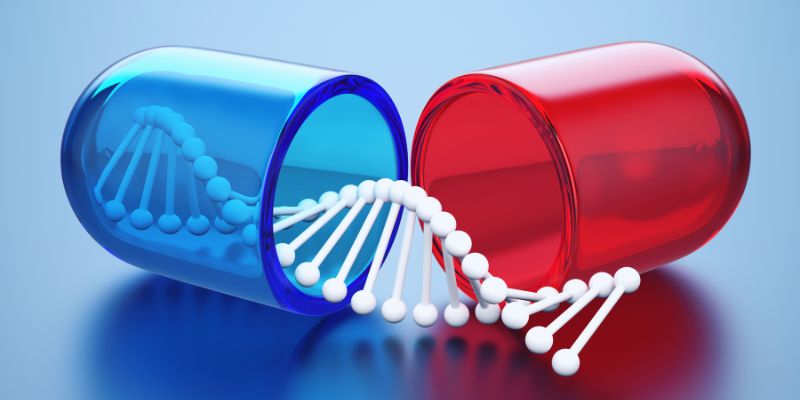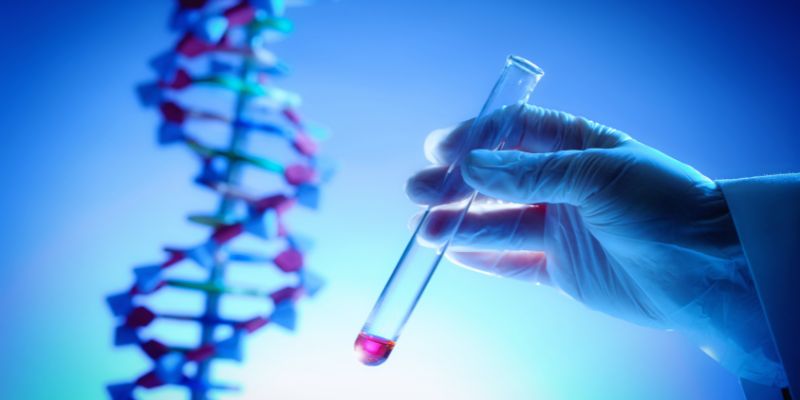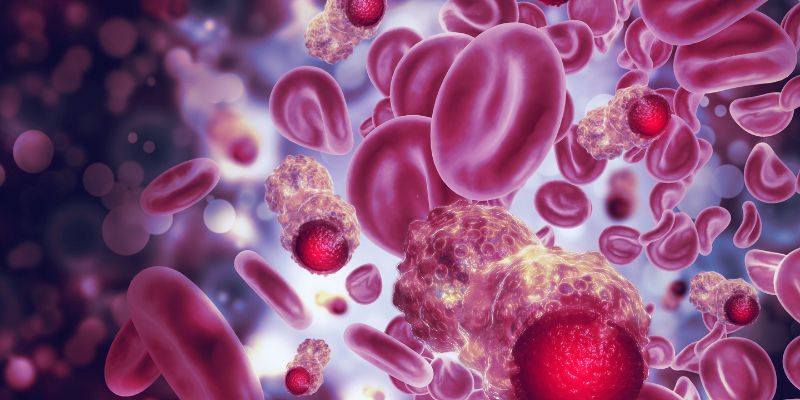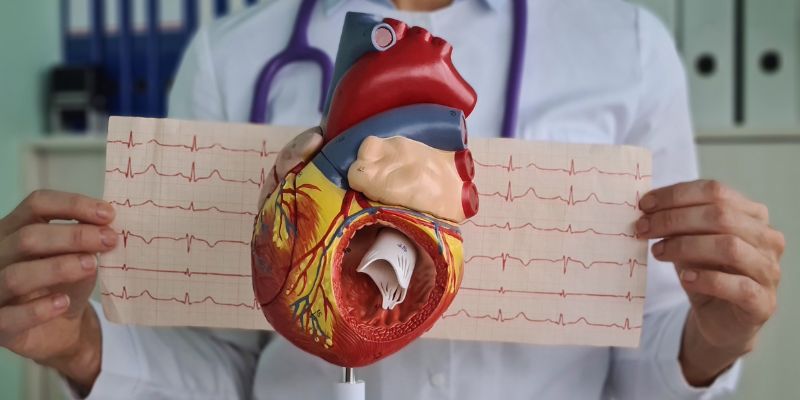How Genetic Testing Can Help Predict Medication Side Effects: An Understanding
Genetic testing transforms how doctors write prescriptions by anticipating how each person responds to various medications. Some people's genetic composition causes side effects; others cannot react to a medication. Knowing these genetic elements helps raise effectiveness and safety levels. Pharmacogenomics is the study of pharmacological reactions under the influence of genes.
By guiding doctors' choice of medication for each patient, genetic testing reduces their risk of significant adverse effects. A basic test can show whether a medication is safe and efficient for a certain person, as different medications affect everyone differently. More often used in healthcare, genetic testing enhances treatment results and helps minimize negative reactions. This tailored technique reduces prescription mistakes by minimizing trial and error, enabling more accurate and efficient medical treatment.

What Is Genetic Testing?
Examining a person's DNA to identify mutations or changes in genes is the basis of genetic testing in medicine. These developments enable clinicians to grasp better how someone might convey features to their offspring, react to medications, or acquire particular diseases. Diagnosing genetic diseases, guiding treatment, and even future health risk prediction depend on this testing. Pharmacogenomics is a crucial form of genetic testing that guides doctors in understanding how a person's genes influence their reaction to medications.
It guarantees the most effective medication is selected and makes tailored treatments possible, lowering the chance of side effects. Many facets of medicine, including expectancy care, inherited disorders, and cancer diagnosis, rely on genetic testing. More precisely, it helps prevent, detect, and treat health disorders. Genetic testing is becoming increasingly available and accurate as technology develops, opening the path for a time when treatment is customized to each person's genetic composition.

Why Some Medications Cause Side Effects?
Not every medicine affects everyone the same way. Unexpected body reactions lead to side effects. Medication handling is mostly dependent on genetics. If the body metabolizes a medication too slowly, it might build up and be harmful. It may be less effective if it processes the medication too rapidly. Some medications, for example, rely on liver enzymes to become active. The medication is useless since some genetic variations stop this activation. Others could make the body more sensitive to a medicine, raising the likelihood of a bad reaction.
Some people also lack the necessary medication breakdown enzymes, which can lead to stronger adverse effects or extended medication action. Before treatment starts, genetic testing helps to find these hazards. It also lets physicians change dosages or choose less dangerous substitutes. By applying genetic knowledge, healthcare professionals can deliver individualized treatments, enhancing safety and efficacy in medical therapy.
The Role of Pharmacogenomics in Medication Safety
Pharmacogenomics is the study of medication reactions under the influence of genes. It helps doctors design treatments based on DNA, reducing the possibility of harsh responses and improving the effectiveness of the medications. This customized strategy improves pharmaceutical safety and therapeutic success. Pharmacogenomic testing has a great application in cancer treatment. Some chemotherapy medications only benefit those with particular genetic markers. Testing guides doctors' decisions on the best course of action for every patient. Blood thins are another important example.
Certain people have genetic variations influencing their medication processing ability. They could have significant adverse effects like too much bleeding or clotting without testing. Furthermore, enhancing the usage of painkillers, antidepressants, and cardiac medications is genetic testing. By spotting genetic variations, doctors can choose the correct medication and dose and avoid side effects. Better treatment results, fewer medication failures, and a safer, more efficient healthcare method follow from this.
Benefits of Genetic Testing for Medication Safety
Genetic testing improves medication safety by guaranteeing patients' correct medication and dosage.
- Reduces Side Effects: Determines how a person's body absorbs medications, avoiding negative side effects and guaranteeing better, safer therapies with less unanticipated problems.
- Ensures Correct Dosage: From the beginning, it helps clinicians choose the appropriate medication dosage to minimize the danger of overdosing or underdosing and prevent trial-and-error prescribing.
- Prevents Medication Failures: Lets patients avoid useless medications, enhancing the success of therapy, the quality of health, and the general quality of life.
- Enhances Patient Care: Reduces hospitalizations brought on by severe medication responses and helps healthcare professionals provide safer, more customized, and more efficient medical treatments.
- Lowers Healthcare Costs: Makes healthcare more reasonably priced by preventing needless treatments and lowering costs associated with ineffective prescriptions, hospital visits, and pharmaceutical side effects.
- Supports Future Advancements: Constant research will increase the availability of genetic testing, enabling safer medicine prescriptions and improved healthcare solutions in daily medical practice.
Who Should Consider Genetic Testing?
Although not everyone wants it, some people may find genetic testing useful. Testing helps patients who have experienced strong medication reactions identify safer medications. Long-term pharmaceutical users can also use genetic screening to ensure the proper dosage and course of action. Those prescribed high-risk medications, strong painkillers, blood thinners, or chemotherapy may need monitoring to prevent negative effects. Spotting genetic components helps doctors customize treatments and raise safety levels.
Genetic testing allows doctors treating chronic conditions, including cancer, heart disease, or mental health issues, to counsel their patients. It directs the decision on the most effective and safe treatments. Some medical experts also employ the genetic testing of newborns to find any early-in-life pharmacological dangers. Genetic screening will become a regular part of medical therapy as research develops. This approach will reduce side effects, enable doctors to deliver medications more precisely, and increase treatment success.
Conclusion:
Predicting negative medication effects relies mostly on genetic testing. It helps doctors give each patient the most effective prescription advice. Through DNA analysis, pharmacogenomic testing lowers important responses and improves treatment efficacy. Already, some diseases including cancer and heart disease—as well as other disorders benefit from genetic testing. Additional pharmaceuticals will be advised depending on genetic components as research advances, generating safer and more specialized treatments. Genetic testing could soon be common practice as we grow, personalizing treatment to fit individual needs and enhancing patient safety and general health.












